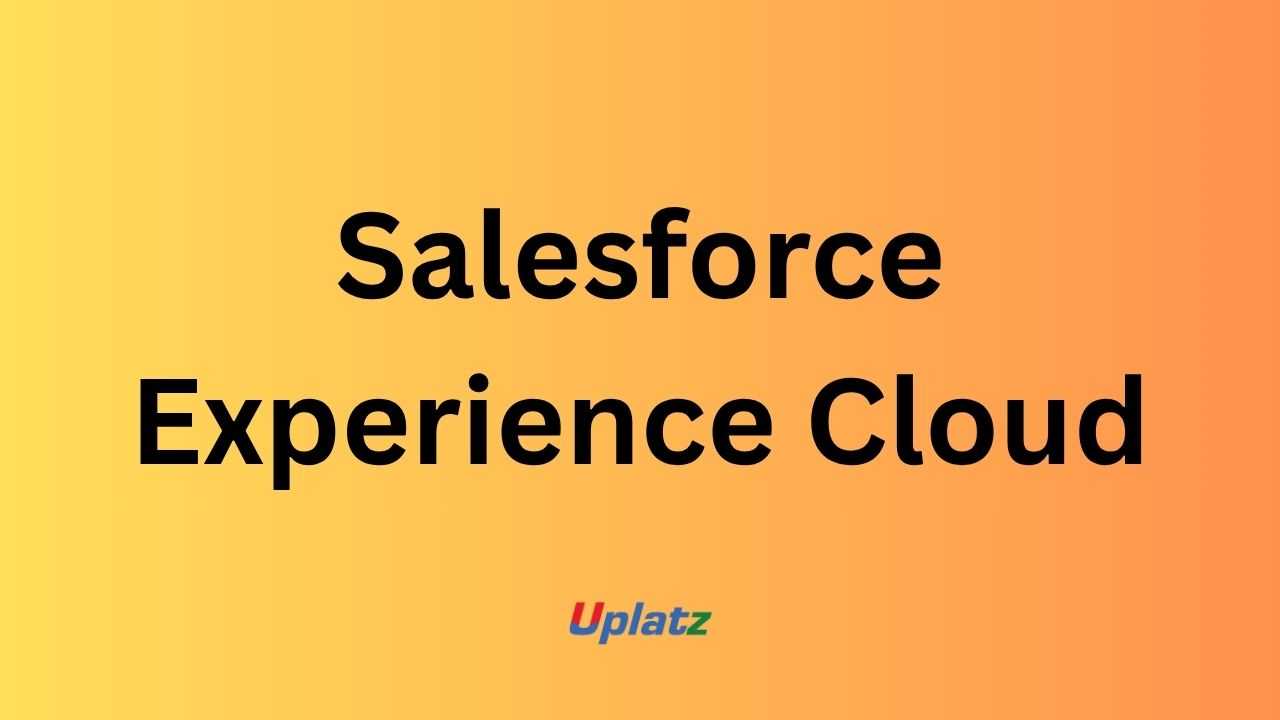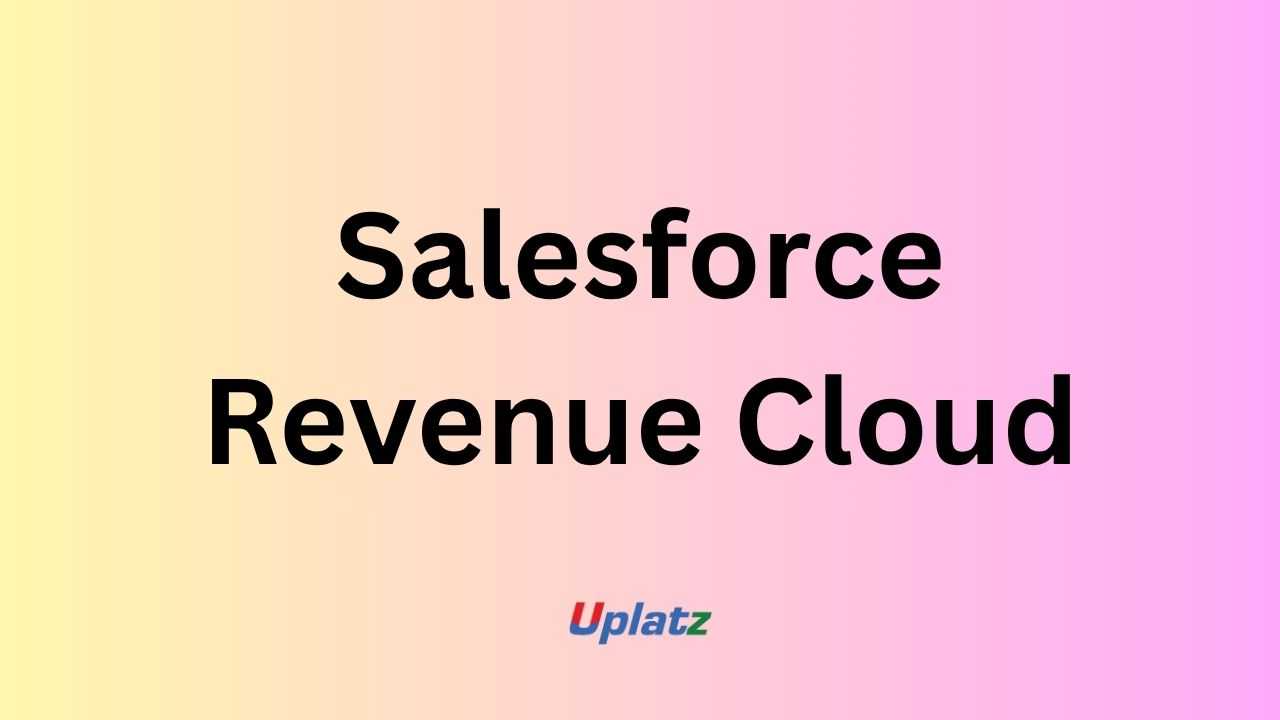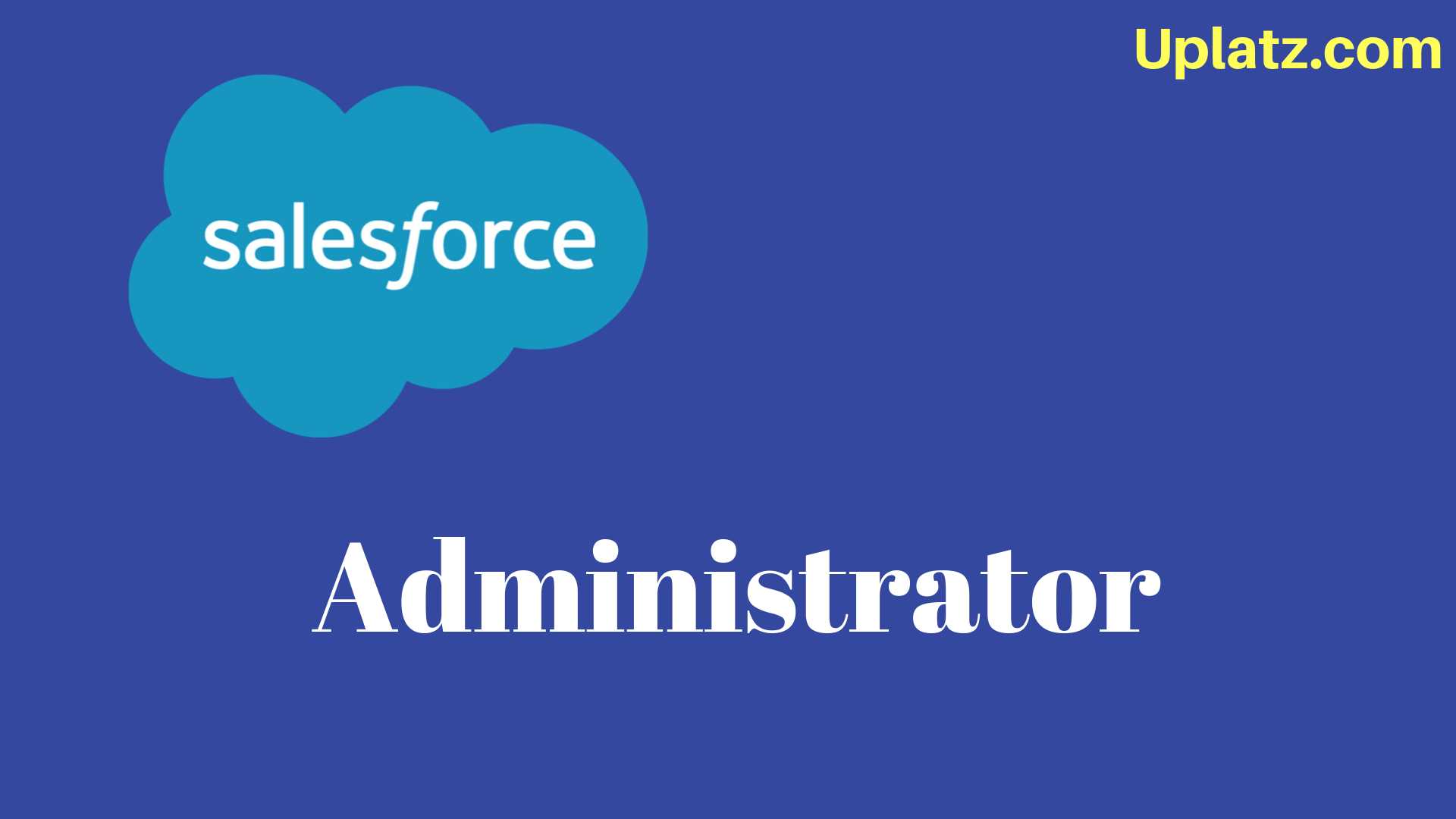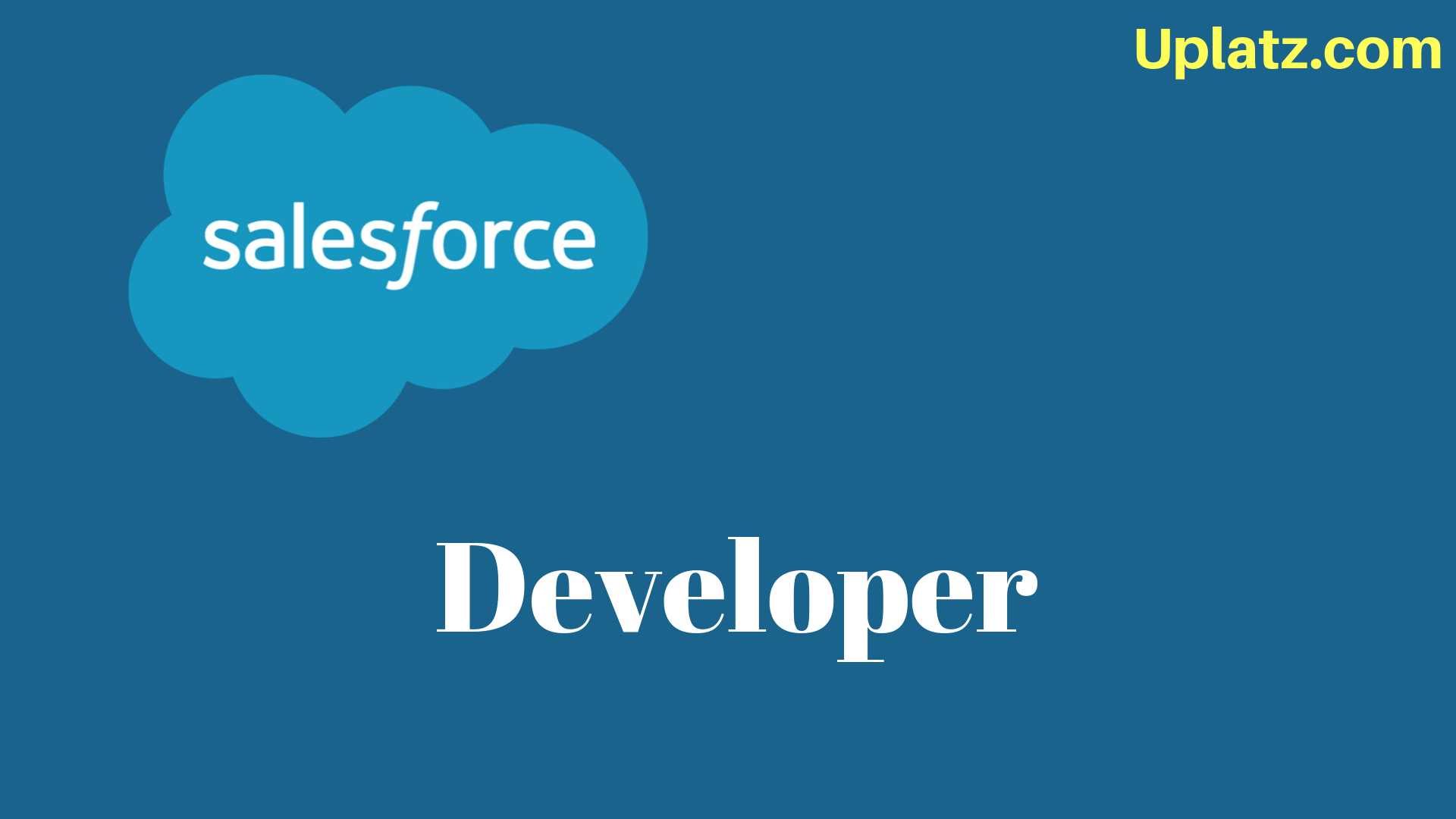Salesforce Experience Cloud – Digital Experience Platforms
Build Engaging Customer Portals, Partner Communities, and Dynamic Websites Using Salesforce Experience Cloud Price Match Guarantee
Full Lifetime Access
Access on any Device
Technical Support
Secure Checkout
Course Completion Certificate
Price Match Guarantee
Full Lifetime Access
Access on any Device
Technical Support
Secure Checkout
Course Completion Certificate
 97% Started a new career
BUY THIS COURSE (
97% Started a new career
BUY THIS COURSE (GBP 12 GBP 29 )-
 86% Got a pay increase and promotion
86% Got a pay increase and promotion
Students also bought -
-

- Salesforce Revenue Cloud – CPQ & Billing Mastery
- 10 Hours
- GBP 12
- 10 Learners
-

- Salesforce Administrator
- 5 Hours
- GBP 12
- 230 Learners
-

- Salesforce Developer
- 30 Hours
- GBP 12
- 5329 Learners

Salesforce Experience Cloud (formerly Community Cloud) enables organizations to create powerful, secure, and personalized digital experiences that connect customers, partners, and employees in one unified platform. With businesses increasingly relying on self-service portals, knowledge centers, and connected communities, Experience Cloud has become a critical tool for enhancing engagement, reducing support costs, and improving service delivery.
This Uplatz hands-on training equips learners with the complete skill set needed to design, build, configure, and manage modern Experience Cloud portals that integrate seamlessly with Salesforce CRM. Through real-world exercises, guided labs, and a final project, the course helps you confidently deliver scalable, branded, and data-driven digital experiences for any organization.
🔍 What is Salesforce Experience Cloud?
Salesforce Experience Cloud is a digital experience platform that enables companies to extend Salesforce CRM capabilities to external users. It allows businesses to build:
-
Customer portals for service requests, case tracking, and knowledge access
-
Partner communities for lead sharing, collaboration, and deal registration
-
Employee portals for HR, IT help desks, and internal communication
-
Self-service sites with FAQs, knowledge base, and automated workflows
-
Microsites and branded digital hubs for campaigns or product launches
The platform is built on the Salesforce Lightning framework, offering responsive templates, drag-and-drop Experience Builder, Lightning Web Components (LWC), flexible theming, and strong security controls. Organizations can expose Salesforce objects, custom data, content, and business processes to external users in a controlled and personalized way.
Experience Cloud is used to improve customer and partner engagement, accelerate onboarding, reduce service workload, and strengthen digital ecosystems — all while leveraging Salesforce as the unified data backbone.
⚙️ How Salesforce Experience Cloud Works
Experience Cloud operates as a powerful extension of the Salesforce CRM environment. It allows businesses to securely expose CRM data, business logic, and workflows to authenticated users through tailored experiences.
Key components include:
-
Sites & Templates – Out-of-the-box templates for customer service, partner portals, help centers, and account management.
-
Experience Builder – A drag-and-drop interface for building pages, layouts, and components without code.
-
LWC and Apex Integration – Custom components to add interactivity, real-time data, and advanced business logic.
-
CMS Connect – Integration with headless CMS platforms and Salesforce CMS for dynamic content.
-
User Access & Sharing – Fine-grained permissions with profiles, roles, and sharing rules.
-
Branding & Themes – Customizable styles, color schemes, and responsive design tools.
-
Automation – Leveraging Flows, Approval Processes, and Process Builder for interactive community experiences.
-
Analytics – Dashboards and reports to measure engagement, adoption, and portal performance.
Experience Cloud ensures secure data access using Salesforce’s robust sharing model, making it ideal for large enterprises that need scalable, multi-level access control.
🏭 How Salesforce Experience Cloud Is Used in Industry
Experience Cloud is widely adopted across industries to build digital ecosystems that improve service delivery and collaboration. Common use cases include:
-
High-Tech & SaaS: Customer onboarding portals and partner enablement hubs
-
Financial Services: Secure client portals for document sharing and account tracking
-
Healthcare: Patient communities and support hubs
-
Manufacturing: Partner distribution centers and dealer management systems
-
Education: Student portals, faculty communities, and alumni networks
-
Telecommunications: Self-service platforms for billing, cases, and service updates
Organizations like Western Union, Toyota, Adidas, and Canon use Experience Cloud to create engaging, self-service digital solutions that reduce customer friction and minimize support costs.
🌟 Benefits of Learning Salesforce Experience Cloud
Mastering Experience Cloud provides strong value in the Salesforce ecosystem:
-
End-to-End Portal Development Skills: Learn how to build fully functional digital experiences without heavy custom coding.
-
High Demand in the Job Market: Companies actively seek Experience Cloud expertise for customer-facing digital transformation.
-
Enhanced Customization: Gain the ability to design dynamic interfaces using LWC, Apex, and Flow.
-
Cross-Department Impact: Build platforms that improve operations across sales, service, HR, and partner management.
-
Improved UX and Engagement: Learn how to create intuitive portals that drive customer satisfaction and loyalty.
-
Career Growth: Experience Cloud specialists often transition into Salesforce consultants, Experience Architects, or Community Managers.
-
Scalable Solutions: Understand how to design portals that support thousands of users securely and efficiently.
Experience Cloud skills directly support digital transformation initiatives, making you essential to Salesforce implementation teams.
📘 What You’ll Learn in This Course
This course provides a deep dive into all aspects of building and managing Experience Cloud sites, including:
-
Understanding Experience Cloud architecture
-
Site creation using standard templates and custom designs
-
Branding and theming with Experience Builder
-
Configuring navigation, pages, and responsive layouts
-
Managing user profiles, roles, and sharing settings
-
Integrating Salesforce data using LWC and Apex
-
Setting up knowledge articles, content management, and search
-
Workflow automation using Flows, Approvals, and Process Builder
-
Implementing CMS Connect and Lightning components
-
Setting up community analytics and optimizing site performance
-
Configuring self-service features such as case deflection and discussion forums
You’ll complete step-by-step labs and a capstone project that simulates a real business use case, helping you apply everything you've learned.
🧠 How to Use This Course Effectively
To maximize your learning:
-
Begin with the Foundations: Understand core architecture, templates, and Experience Builder basics.
-
Follow the Hands-On Labs: Build your own portal from scratch, step by step.
-
Experiment with LWCs: Add interactive components and dynamic content.
-
Work Through Automation Exercises: Use Flow to enhance user interaction.
-
Customize Branding: Explore themes, CSS overrides, and template customization.
-
Practice Permission Setup: Configure secure access control for actual use cases.
-
Integrate CMS & Knowledge Base: Build a complete content-driven experience.
-
Complete the Final Project: Build a commercial-grade site showcasing your skills.
Revisit modules on data security, performance tuning, and analytics — these are essential for real-world deployments.
👩💻 Who Should Take This Course
This course is ideal for:
-
Salesforce Administrators who want to expand into site development
-
Salesforce Developers working on LWCs, Apex, and customization
-
Consultants & Solution Architects designing end-to-end customer portals
-
Business Analysts involved in community and customer-facing projects
-
CRM Managers & Support Teams managing large user communities
-
Job Seekers preparing for Experience Cloud certification
No coding experience is required to start — the course supports both beginners and advanced Salesforce professionals.
🧩 Course Format & Certification
This self-paced course includes:
-
HD video tutorials
-
Step-by-step guided labs
-
Downloadable templates
-
Real-world use cases
-
Projects and assignments
-
Lifetime course access
-
Uplatz Course Completion Certificate
Upon completing the course and final project, learners receive a certificate verifying their Salesforce Experience Cloud proficiency.
🚀 Why This Course Stands Out
-
Practical, project-based learning
-
Covers both admin and developer skills
-
Focuses on real Experience Cloud implementations
-
Teaches branding, customization, and automation
-
Includes LWC and Apex integration guidance
-
Perfect preparation for the Experience Cloud Consultant Certification
This course doesn’t just teach “how to build a portal”—it shows you how to design scalable, secure, and engaging digital experiences aligned with real business needs.
🌐 Final Takeaway
In today’s digital-first world, Experience Cloud is essential for building customer-facing platforms that provide personalization, self-service, and real-time data access. Organizations rely on it to strengthen relationships, improve service efficiency, and create connected digital ecosystems.
With this Uplatz Salesforce Experience Cloud course, you’ll gain all the skills required to design, build, and manage Salesforce-powered digital experiences. Whether you're implementing customer portals, partner communities, or self-service hubs, this course will equip you with the technical and architectural knowledge to deliver high-impact solutions.
Start learning today and become a Salesforce Experience Cloud expert capable of transforming how organizations engage with their customers and partners.
By the end of this course, you will be able to:
-
Understand Salesforce Experience Cloud architecture and components.
-
Create and customize digital portals using Experience Builder.
-
Implement Lightning Web Components (LWC) within Experience Cloud.
-
Manage user roles, permissions, and community access.
-
Configure CMS and knowledge integration for content-driven sites.
-
Automate workflows using Flows and Process Builder.
-
Set up dashboards and reports for Experience Cloud users.
-
Apply advanced branding and theming for custom designs.
-
Optimize community performance and analytics.
-
Prepare for Salesforce Experience Cloud Consultant certification.
Course Syllabus
Module 1: Introduction to Salesforce Experience Cloud
Module 2: Understanding Digital Experience Architecture
Module 3: Creating and Managing Experience Sites
Module 4: Experience Builder – Themes, Branding, and Templates
Module 5: Configuring Users, Roles, and Access Control
Module 6: Adding Functionality with Lightning Web Components (LWC)
Module 7: Content Management and Knowledge Integration
Module 8: Automating Processes with Flows and Approvals
Module 9: Reports, Dashboards, and Analytics for Communities
Module 10: Capstone Project – Build a Customer or Partner Portal
Upon successful completion, learners will receive a Certificate of Completion from Uplatz, validating their expertise in Salesforce Experience Cloud. This Uplatz certification showcases your ability to design and implement digital experience solutions that connect customers and partners through interactive Salesforce-powered portals.
The course content aligns with the Salesforce Experience Cloud Consultant certification exam, providing the skills necessary to build, customize, and manage digital experiences. With this certificate, professionals can demonstrate their ability to extend Salesforce functionality to external audiences while maintaining robust security and performance.
Digital engagement is at the heart of modern business strategy, and Salesforce Experience Cloud specialists are in high demand. This course prepares you for key roles in CRM implementation and customer experience design, including:
-
Salesforce Experience Cloud Consultant
-
Salesforce Administrator / Developer
-
Community Manager / Portal Specialist
-
CRM Solution Architect
-
Digital Experience Designer
Professionals specializing in Salesforce Experience Cloud typically earn between $95,000 and $165,000 per year, depending on experience and certification level.
Completing this course with Uplatz positions you for exciting opportunities across industries like retail, finance, telecommunications, and technology — where building branded, customer-centric portals is a top priority. You’ll also gain valuable knowledge of Lightning Web Components and Experience Builder tools, strengthening your Salesforce development portfolio.
-
What is Salesforce Experience Cloud?
It’s a Salesforce platform that allows businesses to build branded portals, communities, and digital experiences for customers and partners. -
How does Experience Cloud differ from Sales Cloud or Service Cloud?
Experience Cloud extends CRM functionality externally, allowing external users to interact securely with Salesforce data. -
What tools are used to build Experience Cloud sites?
Experience Builder for design, CMS for content, and Lightning Web Components (LWC) for customization. -
What is the purpose of Audience Targeting?
It allows personalized content delivery to specific user groups based on profile or behavior. -
Can Experience Cloud be integrated with Salesforce CRM data?
Yes, objects like Cases, Opportunities, and Knowledge Articles can be displayed directly on portals. -
What are some common use cases of Experience Cloud?
Customer support portals, partner collaboration sites, employee intranets, and e-commerce platforms. -
What is the role of Lightning Web Components in Experience Cloud?
LWCs enhance functionality and user experience by enabling dynamic, interactive components. -
How is access control managed?
Using profiles, roles, permission sets, and sharing settings to control who sees and edits data. -
What analytics tools does Experience Cloud offer?
Built-in dashboards, Experience Cloud reports, and integration with Tableau CRM. -
What are the key benefits of Experience Cloud?
Enhanced engagement, improved collaboration, personalized experiences, and faster service delivery.









